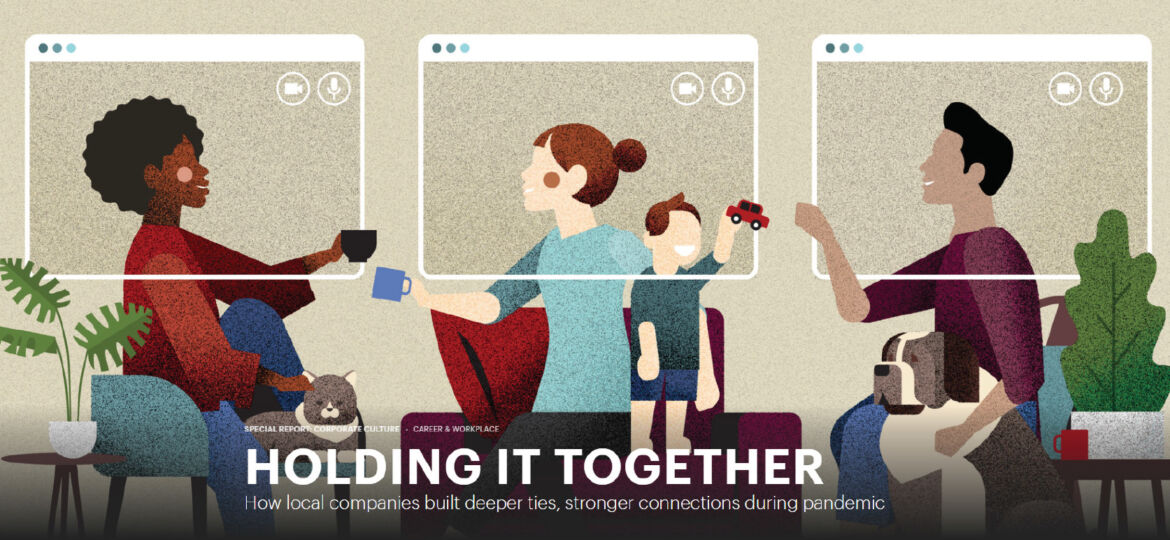
By Laura Williams-Tracy — Contributing Writer
If absence truly makes the heart grow fonder, then company cultures will thrive without effort even as workers remain remote well into a second year. Yeah, right.
Even companies with the most engaged workforces have redoubled efforts in the Covid pandemic to make sure employees feel seen, valued and affirmed. Companies with strong employee engagement know culture is one of the most important differentiators when trying to hire or retain talent.
Holding it all together while workers filtered in and out of the office as necessary demanded more communication and more event planning, and companies tapped the inherent personal connections among coworkers. Employees who knew of their coworkers’ kids and partners pre-pandemic got a closer look via Zoom and Teams, which led to deeper connections.
“You can work together next to someone all day in the office and you overhear what’s going on, but you don’t see what’s going on with their life, with their kids and dogs,” says David King, regional vice president for the Charlotte office of architecture firm Gresham Smith. “In some regards, we grew closer because you got to know people even better.”
Home has a special meaning for staff at Wray Ward. The firm provides branding and marketing communications for many companies in the homebuilding category, so focusing on home among the team was a unifying theme, says Amanda Caskey, a senior account manager.
To nurture belonging among the group, a Wray Ward photographer visited employees’ homes during the early stay-at-home period and photographed employees on their front porch or in their backyard. Those black-and-white portraits now hang in Wray Ward’s new office in west Charlotte, reinforcing the culture of family and home in the office.

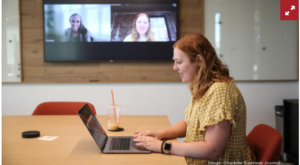
“It’s the care we take for each other, and I mean that in a professional and personal sense,” Caskey says. “It has been a challenging time. We worked hard to make sure everyone felt supported and empowered to be as creative as possible. That existed before Covid and we maintained it.”
To increase connectivity among the team, Wray Ward moved its companywide, in-person town halls from a quarterly event to an online gathering every Friday afternoon. Team members shared client work and agency news, and some shared poetry, art or photography to capture the unique time in their lives.
“It was beautiful to see what this time at home with family and the uncertainty meant to them,” Caskey says. “We shared a lot of laughs and some tears.”
The weekly meetings are likely to remain post-pandemic.
Barringer Construction, a firm known for its yearly Christmas cards, found ways to inject humor and good times into the stress of working in a pandemic.
While its office staff reduced in-person density with A-day and B-day rotations, Barringer field workers donned “I’m Essential: Stay Away from Me” T-shirts, which became a hot commodity among clients and project partners.
Communication efforts amped up with weekly “all-hands” calls to share data from the Centers for Disease Control and Prevention and North Carolina Department of Health and Human Services and minimize risk of exposure. Levity came with sharing news about births, graduations and other good stuff.
“What ultimately ended up happening was we started bonding as an organization even more than before,” says Barringer partner Tim Miller. “The situation of adversity tended to bond people together. We operated with honesty and just put a giant warm blanket around everyone.”
Barringer specializes in corporate office upfits and much of that work slowed in the pandemic. Employees got the message that their relationships with customers were more important than ever, and employees began reaching out to strengthen those client relationships.
“I think our folks felt very informed, very educated, very empowered and supported,” Miller says. “As awful as it is to say, I think Covid made us a better company. And I feel like we took it more on our toes than on our heels.”
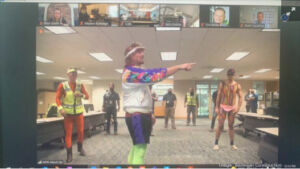
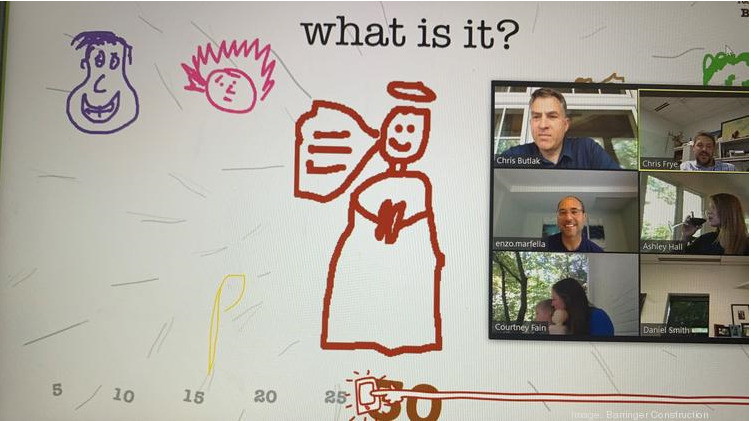
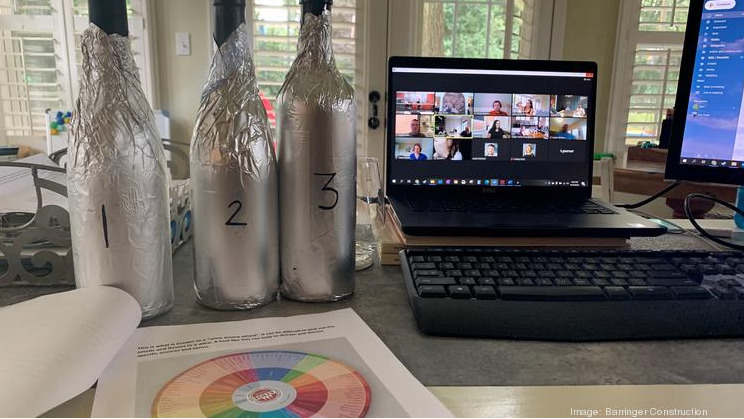
Employees at Gresham Smith are accustomed to collaborating online with design experts in the Nashville, Tennessee-based firm’s 25 other offices. The move to work from home was already part of the culture, King says.
The 53-year-old firm had its most profitable year in 2020, and its employees are the reason, King says. That’s why maintaining a supportive culture is important.
“Recruitment and retainment is a big thing,” King says. “We expanded our C-suite to add a chief development officer to work on providing continuous opportunities for our people. If you are doing something right, you know your people are being approached all the time.”
Construction firm Myers & Chapman reinforced its “get it done” culture early in the pandemic by spearheading the launch of 4C, the Charlotte Commercial Construction Coalition. CEO Marcus Rabun helped launch the group just weeks into the pandemic and, by mid-April of 2020, had more than 50 general contractors — who normally compete for work — collaborating on how to keep workers and inspectors safe from the virus while getting the job done.
With Charlotte’s robust construction market, competition for talent is fierce. Myers & Chapman focuses on employee development with a written individual growth plan for each. Senior mentors are responsible for guiding their mentees and providing opportunities for growth and connection.
“We tried to keep people engaged with those plans so they see the benefit down the road,” Rabun says. “There is a lot of work out there, and other companies are trying to hire your people from you, so you’ve got to make sure you’ve got a strong culture. You’ve got to compensate well. It’s all about keeping our culture intact so we don’t get people stolen for us because of money.”
